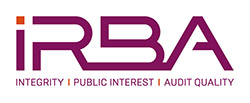IFRS 9, Financial Instruments, and the Expected Credit Loss Model
The International Financial Reporting Standard (IFRS) 9, Financial Instruments, becomes effective for annual periods beginning on or after 1 January 2018.
In South Africa, banks prepare their financial statements in accordance with IFRS, which currently include the International Accounting Standard (IAS) 39, Financial Instruments: Recognition and Measurement (IAS 39).
IAS 39 is soon to be replaced by IFRS 9, which was issued by the International Accounting Standards Board (IASB) in July 2014. The International Accounting Standards Board (IASB) added to IFRS 9 the impairment requirements relating to the accounting for an entity’s expected credit losses on its financial assets and commitments to extend credit.
In brief, under the impairment approach in IFRS 9 it is no longer necessary for a credit event to have occurred (incurred credit losses) before credit losses are recognised. Instead, an entity always accounts for expected credit losses and changes in those expected credit losses (lifetime expected credit losses/12-month expected credit losses).
This change in the impairment methodology has a fundamental impact on the accounting for such losses and also affects how an auditor audits such impairment losses.
Below is a list of links to relevant guidance on IFRS 9 and the ECL model, which have been developed internationally and locally. The list references information that was known at the time of issuing this IRBA Staff Audit Practice Alert: The Audit Implications of the Expected Credit Loss Model for the Auditors of Banks and it is not meant to be exhaustive.
- Basel Committee on Banking Supervision, Guidance on Credit Risk and Accounting for Expected Credit Losses
The objective of that paper is to set out supervisory guidance on sound credit risk practices associated with the implementation and ongoing application of ECL accounting frameworks (e.g. IFRS 9 and the ECL model). It provides banks with supervisory guidance on how the ECL model should interact with a bank’s overall credit risk practices and regulatory framework. The supervisory guidance does not contradict the applicable accounting standards established by accounting standard-setters (e.g. the IASB), but rather presents the view of the BCBS on the appropriate application of those standards (e.g. IFRS 9 and the ECL model). - South African Reserve Bank, Guidance Note 3/2016, Credit risk and accounting for expected credit losses
The purpose of the Guidance Note is to bring to the attention of banks the latest supervisory guidance on sound credit risk practices associated with the implementation and ongoing application of ECL accounting frameworks, as outlined in the BCBS paper. - International Auditing and Assurance Standards Board’s project proposal, Revision of ISA 540, Auditing Accounting Estimates, Including Fair Value Accounting Estimates, and Related Disclosures
Project proposal that addresses the revision of International Standard on Auditing (ISA) 540, Auditing Accounting Estimates, Including Fair Value Accounting Estimates, and Related Disclosures. - International Auditing and Assurance Standards Board’s project update, An Update on the Project and Initial Thinking on the Auditing Challenges Arising From the Adoption of Expected Credit Loss Models
Part A of this publication describes the project to revise ISA 540 and is intended to be of relevance to auditors, management, those charged with governance, users (including investors), regulators and audit oversight bodies, particularly for those involved in entities where the financial statements have one or more accounting estimates that require significant judgement. Part B of this publication is intended to help auditors understand the audit challenges that may arise from entities’ adoption and future application of Expected Credit Loss (ECL) models, and to help auditors develop appropriate audit procedures in that respect. - Global Public Policy Committee, The implementation of IFRS 9 impairment requirements by banks
This paper has been published to promote the implementation of accounting for expected credit losses to a high standard. It aims to help those charged with governance to evaluate management’s progress during the implementation and transition phase. - The South African Institute of Chartered Accountants (SAICA) The New Financial Instruments Standard web page
The SAICA web page includes links to IFRS 9 related publications of an accounting nature.





